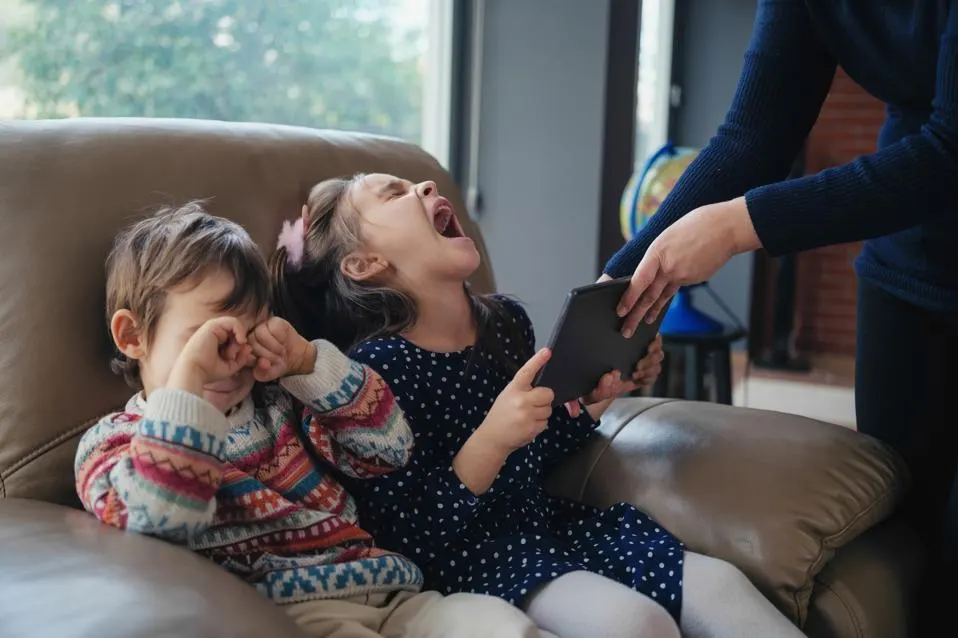Children younger than 14 who live in Florida are now prohibited from joining social media platforms, while those who are 14 or 15 will need a parent’s consent to sign up. The restrictions come after Governor Ron DeSantis signed a bill into law last month, which will fine companies up to $50,000 per violation.
“Ultimately, [we’re] trying to help parents navigate this very difficult terrain that we have now with raising kids, and so I appreciate the work that’s been put in,” DeSantis said in remarks during the bill-signing ceremony.
The Sunshine State’s governor previously vetoed a more restrictive version of the bill that would have banned social media accounts for those under 16, while it also required Florida residents to submit an ID or other identifying materials in order to join social media.
As Goes Florida So Goes The Country?
Though it is often California that leads the way when it comes to social programs and consumer-friendly legislation, the new law in Florida could gain traction in other states. Yet, some warn it is still far from perfect.
“The general concept is reasonable, as a mechanism to aid in children’s addiction to social media, online bullying, peer pressure, lower self-esteem, and other harmful effects on minors,” said technology industry analyst Susan Schreiner of C4 Trends.
“However, as the Florida law is written, it is more a call to action than a proposed solution,” added Schreiner. “There are questions about effective age verification, concerns about privacy breaches, and over-regulation. How will it be enforced, since it offers no solution to the third-party verification section? Current age-verification solutions have been fooled by children under 14. A likely unintended consequence will be that it will jump-start the fake ID market for pre-teens.”
Is Such A Ban Necessary?
The law comes as there has been a significant body of research indicating a variety of detrimental consequences associated with overexposure to social media use among children today.
“Some findings indicate that the more a kid engages with social media the more likely they are to express less life satisfaction or even more disconcerting higher reports of depression,” explained Dr. Kent Bausman, professor of sociology in the College of Arts and Sciences at Maryville University in St. Louis.
He noted that the connection to higher reports of depression isn’t quite conclusive.
“In fact, a 2020 study found the negative effects associated with social media among children are often negated when you control for adverse childhood experiences,” Bausman continued. “Furthermore, there is a growing body of research that notes engagement in social media use has become a routine activity for children that is shown to help in the development of their social connections and technical skills.”
Thus, the reality is that social media use has become a part of young individuals’ social identity.
“Social media is the primary way that children and young adults communicate and express themselves,” added Bausman. “Older generations may not understand it or like it but to remove children’s access to social media platforms would likely further isolate youth from one another and inhibit their social development. Social media platforms such as Instagram, TikTok, and Snapchat are the spaces that youth use for self-expression, identity exploration, and community building.”
A danger is that to restrict their access to a tool that has always been a part of their existence will likely add to feelings of alienation, which they are already struggling with in this post-pandemic period.
“Furthermore, restricting their access will limit the development of their digital literacy skills necessary to successfully and safely compete in our growing digital based economy,” suggested Bausman.
The Latest Hot Thing to Demonize
Before social media was blamed for the woes of the youth, there were video games, violent movies, TV, and all sorts of musical genres from heavy metal to hip hop to good old rock and roll. And there were also comic books, and if we go back far enough, even books!
It could be argued that if the kids liked it, it must be bad and need to be banned.
“Let’s not forget that banning things from kids historically produces what we call the ‘forbidden fruit effect.’ When we ban something we can create a sense of curiosity and rebellion with something that children often seek out more earnestly,” said Bausman. “For the State to limit access to something that already has been a part of most children’s lives to this point, would only create generational antagonisms as children would likely perceive this as arbitrary and unjustified.”
It is likely the Florida law could face future legal challenges, as it could be seen to infringe on digital privacy and First Amendment rights surrounding censorship. That isn’t to say that the problems of social media use among kids today should be ignored.
“A better alternative would have been to consider the Protecting Kids on Social Media Act introduced in April 2023 which explains reasonable steps for age verification, for instance—and considers a more balanced approach to healthy human development,” said Schreiner.
“It would have been better if the Florida law had considered a middle-ground approach. The law could have promoted digital literacy education for children and parents, empowering them to navigate the information ecosystem more effectively,” Schreiner added. “Additionally, the law could have introduced regulations to prevent the targeting of minors and prohibited algorithm tracking and data collection practices. This could have potentially served as a model to blunt the negative effects of TikTok, Meta, YouTube and Snap.”

